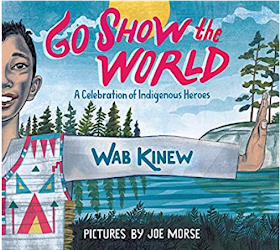 |
| photo via Unsplash |
Helping My Mom Cook
I let my hands go on an adventure with cooking,
Snow
chopping away the evil monsters.
My cooking is like an adventure,
Turning the stove on,
and seeing the boiling water,
like lava.
When it boils,
the lava
is letting out all the smoke.
Turning the stove off,
and seeing the boiling water stop,
like the lava
stopped letting out smoke.
Then grabbing the plate,
like finding a map for the loot.
Finally eating the food,
like finding the loot.
by Sarkees K.
My cooking is like an adventure,
Turning the stove on,
and seeing the boiling water,
like lava.
When it boils,
the lava
is letting out all the smoke.
Turning the stove off,
and seeing the boiling water stop,
like the lava
stopped letting out smoke.
Then grabbing the plate,
like finding a map for the loot.
Finally eating the food,
like finding the loot.
by Sarkees K.
 |
| photo via unsplash |
The white clouds
the frosty air the dazzling
snowflakes that fall from the skies
You can do all kinds of things
in the dazzling snow
You can make a snowman a snowball
you can also watch it snow
Don’t you feel the frosty air
don’t you feel how cold it is
don’t you feel how cold the snow is
It’s all because of the axis pointed
away from the sun, the indirect
sunlight.
the frosty air the dazzling
snowflakes that fall from the skies
You can do all kinds of things
in the dazzling snow
You can make a snowman a snowball
you can also watch it snow
Don’t you feel the frosty air
don’t you feel how cold it is
don’t you feel how cold the snow is
It’s all because of the axis pointed
away from the sun, the indirect
sunlight.
by Shadman M.
In our pacing guide for 5th grade writing instruction, we've come back around to narrative writing. When I looked at what I'm expected to teach ("Use concrete words and phrases and sensory details to convey experiences precisely; use a variety of transitional words, phrases, and clauses to manage the sequence of events") it seemed like this work could definitely be done using the story telling medium of poetry.
We began by brainstorming ordinary daily events. Even though video games are likely the most ordinary thing most of my students do on a daily basis, we didn't use those examples for our writing topics. We've also begun doing 5 minute quick writes at the beginning of most writing workshop times. This has seeded their writer's notebooks with lots of good material for their poems.
I was thrilled with Sarkees' poem about cooking with his mom. Without ever being taught about extended metaphors, he brought his adventure metaphor all the way through his poem. Sarkees wants more than anything to be a chef when he grows up. It is fun to see students' passions coming through in their writing.
Shadman's poem is so like him. He worked hard to be very poetic in his first stanzas, even including some repetition. But the logical, scientific side of him gets the last word in the conclusion, an echo of what he learned about the seasons in science earlier in the year.
Thank you, Sarkees and Shadman for sharing your poems!
Robyn has the Poetry Friday roundup this week at Life on the Deckle Edge.













